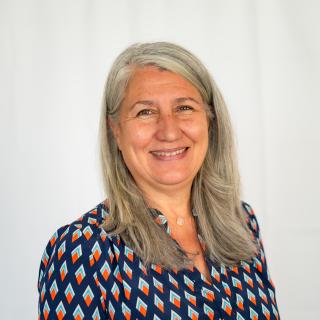Lost in Translation
State PreK Must Meet Needs of Dual Language Learners
September 23, 2016
As educators, we are continually striving to close the well-researched and identified achievement gaps, including those between children who speak a language other than English at home and children who speak only English. We know the earlier we start with high-quality education programs the better. So if we look at states’ pre-K policies, we hope to see efforts to support all of our preschoolers, including the estimated 23 percent of 3- and 4-year-olds in the US who are learning to speak two languages. For the first time, the National Institute for Early Education Research 2015 State of Preschool Yearbook provides an in-depth look at state pre-K policies related to these dual language learners (DLLs).
Addressing the particular needs of young DLLs requires the adoption of new policies and practices. Children cannot learn if they are scared, do not feel welcome, or cannot communicate with their teachers. A National Institute for Early Education Research study shows these children benefit most when instruction is provided in both English and their home language without sacrificing English language skill building .
When looking to see how states are adapting policies and practices for DLLs or English language learners (ELLs) one of the first things to check is whether preschools assess them in their home language–but only 6 states report that they are able to do this. Few states–eight to be exact–report having teachers specifically qualified for working with these children. Beyond this, just 10 states report allocating extra resources to serve DLL children. Indeed, across the country, state pre-K policies fail to align with what research has proven effective.
For those states attempting to address the needs of their DLL preschool population, only 14 even know what languages the children speak. In most cases, there are a plethora of languages and dialects spoken by preschoolers. Kentucky, for example, documented more than 39. Would such information be useful to states? Yes! How else can they target resources so teachers can better understand how to best work with these students? Meeting the needs of DLL children requires adapting and enhancing curricula and assessments, revisiting early learning standards to ensure states address all areas of development, and improving connections with families.
Of course we want children living in the US to learn English, but we also want to value their home language and culture.
Hawaii has taken on this challenge. The Hawaiian language almost became extinct but in 1978, a grassroots effort led Hawaii to become the only state with two official state languages. There have been challenges in aligning quality practices across the early childhood programs, for example in conducting classroom observations and child assessments since Hawaiian, like many indigenous languages are oral languages and not able to simply be “translated.” Hawaii is working out some of these issues with implementation of the federal Preschool Development Grant in charter schools that are only Hawaiian and Hawaiian-immersion, both English and Hawaiian.
As our preschools become more diverse, both linguistically and culturally, educators must find better ways to teach all our children. We can start with the 2015 State of Preschool Yearbook Appendix A to learn how other states are developing policies that support all learners, not just those that speak English.
GG Weisenfeld is an Assistant Research Professor at NIEER. Dr. Weisenfeld works on the State of Preschool Yearbook and as an education consultant researching and offering technical assistance on designing and implementing early childhood policies and programs.
The Authors
GG Weisenfeld is a Senior ECE Policy Specialist at the National Institute for Early Education Research (NIEER) at Rutgers University, Graduate School of Education.
About NIEER
The National Institute for Early Education Research (NIEER) at the Graduate School of Education, Rutgers University, New Brunswick, NJ, conducts and disseminates independent research and analysis to inform early childhood education policy.

